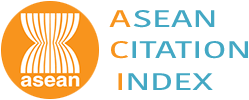Maternal Mortality and Contributing Risk Factors
Abstract
Objectives: Maternal mortality is one indicator to assess a nation’s health care quality. This research was conducted to determine the determinant risk factors for maternal mortality. Methods: A retrospective case control study at Dr. Mohammad Hoesin General Hospital for 5 years, with 200 samples consists of 50 cases of maternal mortality and 150 physiological labor cases as control group. Results: For 5 years, there was 109 cases of maternal mortaliy. Of the 50 samples of maternal mortality cases, the most common cause were preeclampsia/eclampsia (50%), followed by hemorrhage (28%). The risk factors were categorized as distant, intermediate, and outcome factors, as stated by McCarthy et al. On bivariate analysis, we found the significance on maternal education and husband’s occupation (distant factors), residence, referral status, numbers of ANC visits, first attendant, labor facility and history of prior medical history (intermediate factors), and also modes of delivery and complications (outcome factors). On the multivariate analysis to determine the most contributing risks factors for maternal mortality, it was found that maternal education and residence were the most influencing factors for maternal mortality (OR 5.74 and 4.65 respectively; p=0.001). Conclusions: The most contributing risks factors for maternal mortality were maternal education and residence. [Indones J Obstet Gynecol 2012; 36-1:8-13] Keywords: case control study, maternal mortality, risk factors.Downloads
Download data is not yet available.













